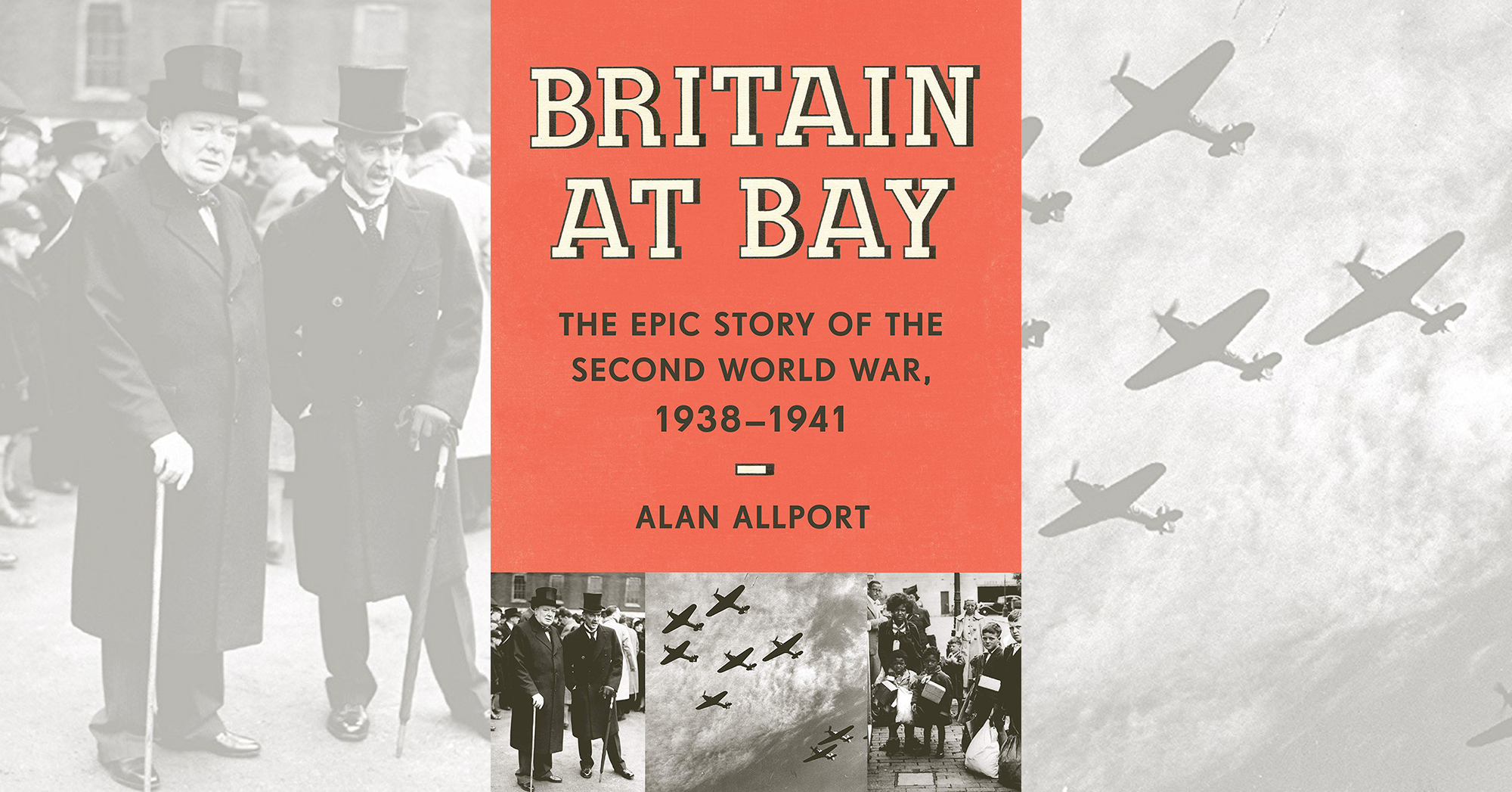Britain at Bay: The Epic Story of the Second World War, 1938–1941, by Alan Allport, Knopf, New York, 2020, $35
Britain may have suffered during World War II, but readers of this splendid history, the first of two volumes, will have no complaints. British historian Allport delves into personalities, politics and economics and has read a vast number of journals and letters. Neville Chamberlain poured out his heart to his sister; Winston Churchill to everyone. The result is a steady stream of well-documented analyses that may raise hackles.
Despite the absence of warfare, Allport’s account of 1938 is not short of fireworks. Chamberlain’s bowler and umbrella give the impression of a milquetoast, but he saw himself as a hard bargainer “who could get anyone to say ‘yes,’ given enough time.”
Everyone denounces Chamberlain for having sold out Czechoslovakia at Munich, but as Allport emphasizes, Britons dreaded repeating the slaughter of World War I and thus many cheered the development. Anti-appeasers were a niche, upper-class coterie with little popular support, including Churchill. Chamberlain ultimately regretted Munich—but so did Adolf Hitler. Unlike almost everyone throughout Europe (and his own officials), the Führer wanted war and, to the end of his life, looked on the Munich Agreement as a mistake.
Allport repeats the universal praise for Churchill’s early attacks on Hitler, but under the popular delusion that mass bombing would decide future wars and that the French army could handle the Wehrmacht, he paid little attention to Britain’s army. The date Parliament declared war, Sept. 3, 1939, was also the date it passed mass conscription.
In their eagerness to recount Dunkirk and Britain’s “finest hour,” popular histories pass quickly over the September 1939 to May 1940 “Phony War.” Allport notes the French still believe Britain left them in the lurch after Germany’s invasion. Preparing to fight alone, Britain refused to commit its entire air force and, without prior consultation with France, instead opted to evacuate Dunkirk.
Although genuinely heroic, the Battle of Britain was more stalemate than victory. The next two years saw a series of failures in Greece, Crete, Dieppe and North Africa, frightening losses to U-boats in the Battle of the Atlantic, and a poor performance by Bomber Command over Germany. Hitler’s invasion of Russia thrilled a beleaguered Britain, but it was only America’s entry into the war (in the forthcoming volume) that made victory certain.
Not the History Channel version, but insightful and a delight to read.
—Mike Oppenheim
This post contains affiliate links. If you buy something through our site, we might earn a commission.





